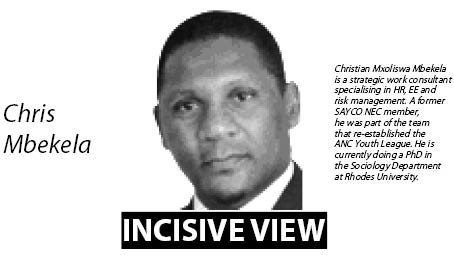The slogan, “A better life for all” has evaporated into thin air. Bridging the gap between the haves and have-nots is no longer in the political vocabulary. The African renaissance has gathered dust in the library and intellectually stimulating discourse has become alien to the political theatre. It seems the political mandarins have run out of creative and innovative ideas. The OR Tambo memorial lectures do not even resemble his intellectual prowess.
Let me admit, creativity has taken place within a very strange context. Factions have evolved marketing strategies by branding them into OM17, PM17 (provincial), CR17 and NDZ (national). They are no longer operating as loose conglomerations. They perform their factional duties in a structured and organised manner.
They are so powerful that the brand of the ANC has been overshadowed. The only item on the agenda revolves around outsmarting each other in order to acquire something lucrative, with the public sector economy a primary victim. The issue of the state-owned enterprises have become a soft target for sectarian self satisfaction.
Many SOEs are supported by the government, whereas they were established to make a meaningful contribution to the growth of the economy, create employment opportunities, upskill the labour force and bring money into state coffers to ensure sustainable state liquidity. This would in turn enable the state to deliver effectively on its constitutional mandate and ensure it reduces its budget deficit and become less dependent on loans.
State’s over-reliance on borrowing weakens its capacity to mitigate against the impact of political, socio-economic, safety and security risks. These, combined, could threaten state sovereignty.
Locate the after-effects of factionalism within this context: factionalism within mainstream politics poses a serious threat to us as a nation as a whole. That’s why all of us should be concerned. It is of paramount importance to rescuscitate activism within civil society context to curb the threat factionalism represents.
The misdemeanours of SOEs, political uncertainty and the vacillation of leadership on governance matters have contributed to economic decline. Compounding the situation is a National Development Plan that is not located within the context of the budget. The NDP as an overarching vision of the nation should have been linked to the budget. Anyone who says the NDP is in operation is being economical with the truth.
This uncertainty has created discomfort within investor circles, and investments are not in full swing. These are some of the issues the Minister of Finance Malusi Gigaba should be addressing with his colleagues and other role players. Focusing more on conservative fundamentalism is not a solution to the deep seated socio-economic problems characterising South Africa.
Gigaba overemphasised points raised by his predecessors without detailing what is to be done. That is what South Africa needs now as we weather the storm. To be fair to the present incumbent, he may have good intentions to turn the tide, but decisions being made at the apex of government may frustrate his vision.
He operates within the context of multiple micro and macro competing interests linked to global forces with a different agenda. In a hierarchal political chain allergic to proper governance, decisions are taken in a crude manner and cascaded to subordinates for execution. It is up to them to comply – or not and face the consequences.
Global factors have also contributed to the economic meltdown, and local businesses invest offshore instead. Illicit capital outflow running into billions has become a threat to the South African economy. These things are happening at a time where critical state organs are fragile due to extraneous factors serving a purpose outside the constitutional framework. South Africans liberated themselves from the yoke of apartheid, and it is up to them to fix their situation.
- Christian Mxoliswa Mbekela is a strategic work consultant specialising in HR, EE and risk management. A former SAYCO NEC member, he was part of the team that re-established the ANC Youth League. He is currently doing a PhD in the Sociology Department at Rhodes University.



